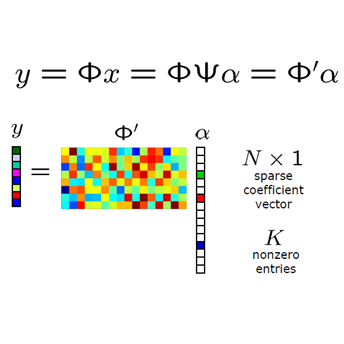Long-range correlated errors can severely impact the performance of NISQ (noisy intermediate-scale quantum) devices, and fault-tolerant quantum computation. Characterizing these errors is important for improving the performance of these devices, via calibration and error correction, and to ensure correct interpretation of the results. We propose a compressed sensing method for detecting two-qubit correlated dephasing errors, assuming only that the correlations are sparse (i.e., at most s pairs of qubits have correlated errors, where s << n(n-1)/2, and n is the total number of qubits). In particular, our method can detect long-range correlations between any two qubits in the system (i.e., the correlations are not restricted to be geometrically local). Our method is highly scalable: it requires as few as m = O(s log n) measurement settings, and efficient classical postprocessing based on convex optimization. In addition, when m = O(s log^4(n)), our method is highly robust to noise, and has sample complexity O(max(n,s)^2 log^4(n)), which can be compared to conventional methods that have sample complexity O(n^3). Thus, our method is advantageous when the correlations are sufficiently sparse, that is, when s < O(n^(3/2) / log^2(n)). Our method also performs well in numerical simulations on small system sizes, and has some resistance to state-preparation-and-measurement (SPAM) errors. The key ingredient in our method is a new type of compressed sensing measurement, which works by preparing entangled Greenberger-Horne-Zeilinger states (GHZ states) on random subsets of qubits, and measuring their decay rates with high precision.
翻译:远程相关差错会严重影响 NISQ ( noisy midal- scale Q) 装置的性能, 并会严重影响 NAISQ (noisy midal- scale) 和 Qubbits 计算 。 特别是, 确定这些差错对于通过校准和错误校正来改善这些装置的性能以及确保正确解释结果非常重要。 我们建议了一种压缩感测方法, 用于检测双公比特相关脱毛误差, 假设这些差差差差差差差差( 例如, 多数数的qubits配有相关差错, sn (n) s (rock) 2, s (n), s (n) ral- sider Q) oqual- squal- coqual- rqual demological rations a.



